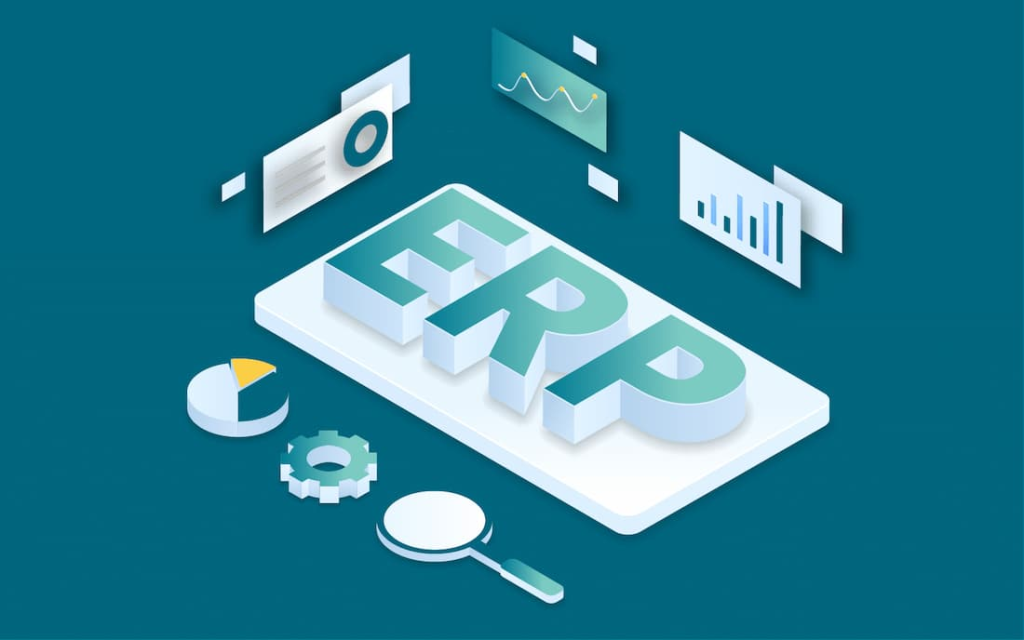In today’s fast-paced business world, companies face numerous challenges when it comes to managing their operations efficiently.
One powerful solution that has emerged to address these challenges is Enterprise Resource Planning (ERP) software. This article aims to provide a comprehensive understanding of ERP software, its meaning, benefits, and key functionalities.
Defining ERP Software Meaning

ERP stands for Enterprise Resource Planning. It refers to a software system that integrates and manages core business processes across various departments and functions within an organization.
ERP software provides a centralized database that allows different departments to access and share information in real-time, facilitating efficient communication and collaboration.
Key Features and Functionalities
- Integration: ERP software enables the integration of diverse business functions such as finance, human resources, supply chain management, customer relationship management, manufacturing, and more. By consolidating data from various departments, ERP systems provide a holistic view of the organization’s operations.
- Centralized Database: One of the fundamental aspects of ERP software is a centralized database. It serves as a single source of truth, eliminating data duplication and providing accurate and up-to-date information for decision-making.
- Automation: ERP software automates manual and repetitive tasks, streamlining business processes and reducing the risk of errors. This automation not only saves time but also enhances productivity and allows employees to focus on more value-added activities.
- Real-time Reporting and Analytics: ERP systems generate real-time reports and analytics, offering insights into key performance indicators (KPIs), financial data, sales figures, inventory levels, and other critical metrics. This empowers organizations to make data-driven decisions and respond quickly to changing market conditions.
Benefits of ERP Software

Enhanced Efficiency: ERP software optimizes business processes, eliminates redundancy, and improves overall efficiency. It enables seamless coordination among departments, minimizing delays and improving productivity.
- Improved Collaboration: ERP systems foster collaboration by breaking down information silos and facilitating communication across departments. This leads to better teamwork, increased transparency, and improved decision-making.
- Cost Savings: By automating processes and improving resource allocation, ERP software helps reduce costs associated with inventory management, production, human resources, and other operational areas. Moreover, it eliminates the need for multiple standalone systems, reducing IT infrastructure and maintenance costs.
- Scalability and Flexibility: ERP software is designed to support organizational growth. It can scale with the business and accommodate changing requirements, whether it involves expanding into new markets, adding new product lines, or adapting to regulatory changes.
In summary, ERP software is a powerful tool that enables organizations to streamline their operations, improve efficiency, and achieve better visibility into their business processes. By integrating different functions and departments, ERP systems provide a comprehensive view of the organization, facilitating data-driven decision-making and fostering collaboration.
With its numerous benefits, ERP software has become an indispensable asset for businesses seeking to enhance productivity, reduce costs, and stay competitive in a rapidly evolving marketplace.
Choosing the Right ERP Software for Your Business

Now that we have gained a clear understanding of ERP software and its benefits, it’s essential to explore the factors to consider when choosing the right ERP solution for your business. Implementing an ERP system is a significant investment, both in terms of finances and time, so it’s crucial to make an informed decision.
This article will guide you through key considerations for selecting the most suitable ERP software for your organization.
Define Your Business Requirements
Before diving into ERP software selection, it’s vital to define your specific business requirements. Conduct a thorough analysis of your organization’s processes, pain points, and long-term goals.
Consider factors such as industry-specific functionality, scalability, integration capabilities, and reporting needs. This initial step will help you identify the critical features and functionalities your ERP system must have.
Evaluate Vendor Credibility and Experience
Choosing a reputable ERP vendor is crucial for a successful implementation. Research different vendors and evaluate their credibility, experience, and track record.
Consider factors such as vendor stability, customer reviews, industry recognition, and the number of successful ERP implementations they have conducted. Engage in discussions with vendors to understand their expertise in your industry and their ability to meet your unique business requirements.
Assess Customization and Flexibility
Every organization has unique processes and requirements. Therefore, it’s important to assess the level of customization and flexibility offered by the ERP software. Determine if the system can be tailored to align with your specific business processes without compromising its core functionalities.
Consider the ease of customizing workflows, adding fields, creating reports, and integrating with existing software applications.
Consider Scalability and Future Growth
Your ERP software should be capable of accommodating your organization’s growth and future needs. Evaluate its scalability by considering factors such as the number of users, transaction volumes, and the ability to add new modules or functionalities as your business expands.
Ensure that the ERP system can support multi-site operations, international operations, and mobile access if these align with your future growth plans.
Integration Capabilities
Efficient integration with other business applications is crucial for seamless data flow and process automation. Determine the ERP software’s compatibility with existing software systems such as CRM, e-commerce platforms, and supply chain management tools.
The ERP system should allow for smooth data exchange and real-time information sharing, minimizing manual data entry and improving overall operational efficiency.
Ease of Use and Training
A user-friendly ERP system is essential for successful adoption and utilization across your organization. Consider the software’s interface, navigation, and ease of use for different user roles.
Assess the availability of user training resources, documentation, and support services provided by the ERP vendor. A well-supported and intuitive ERP system will minimize the learning curve and maximize user acceptance.
Conclusion
Choosing the right ERP software for your business is a critical decision that can significantly impact your organization’s efficiency and productivity. By defining your business requirements, evaluating vendor credibility, considering customization and scalability, assessing integration capabilities, and prioritizing ease of use, you can make an informed decision.
Remember to involve key stakeholders and conduct thorough testing and demonstrations before finalizing your choice. With careful consideration and selection, your ERP software implementation can drive positive transformation, streamline operations, and position your business for long-term success.





